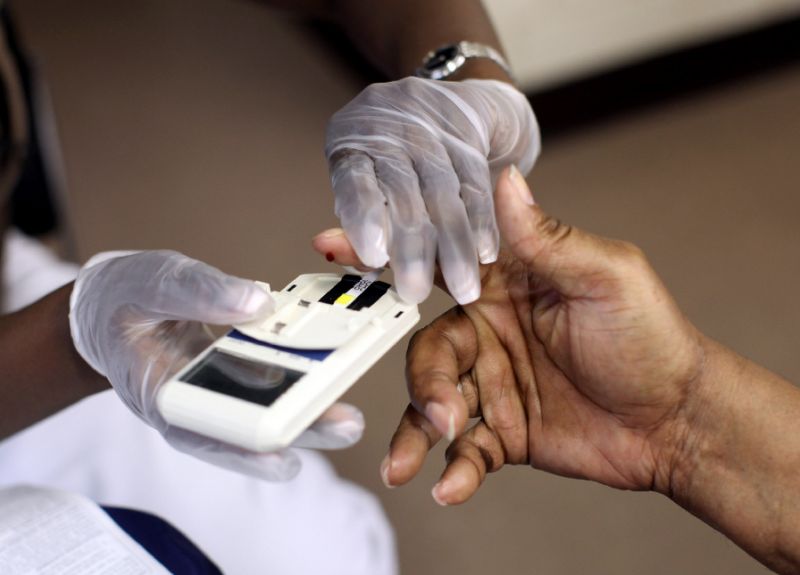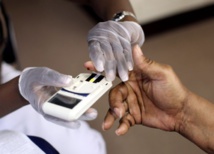The 2015 guidelines, which were authored by the United States Preventive Service Task Force (USPSTF), recommend that people undergo screening for diabetes if they are aged 40 to 70 years old and are overweight or obese.
"We were interested to do this study because of population trends that racial and ethnic minorities are developing diabetes at younger ages and lower weights than whites," said senior author Matthew O'Brien, assistant professor of medicine at Northwestern University Feinberg School of Medicine.
The findings, published in the journal PLOS Medicine, are based on electronic health record data from more than 50,000 adult patients at community health centers in the midwestern and southwestern United States between 2008 and 2013.
Only half of African-American patients that developed abnormal blood glucose levels -- a condition known as dysglycemia -- met the screening criteria, and 37 percent of Latino patients.
"Say I'm caring for an obese 32-year-old Hispanic woman with a family history of diabetes who had gestational diabetes with a previous pregnancy," said O'Brien.
"She shouldn't be screened, according to the guidelines, but she's very likely to have either prediabetes or diabetes."
The guidelines have cost implications for patients, too.
Under President Barack Obama's health care law, the Affordable Care Act, all services recommended by the USPSTF must be fully covered by insurers.
But if a patient does not meet the guidelines' criteria, he or she may have to pay out of pocket for a diabetes test.
Those who are missed early can go on to develop full blown diabetes or complications including heart attack or stroke.
"By reporting on the limited effectiveness of this screening program, this study raises concerns about the program's broad utility, particularly among racial and ethnic minority groups," said the report.
"Primary care providers may need to consider screening minority patients who are younger than 40 years old and have a normal weight."
----------------------------------------------------------------------------------------------------------------------
"We were interested to do this study because of population trends that racial and ethnic minorities are developing diabetes at younger ages and lower weights than whites," said senior author Matthew O'Brien, assistant professor of medicine at Northwestern University Feinberg School of Medicine.
The findings, published in the journal PLOS Medicine, are based on electronic health record data from more than 50,000 adult patients at community health centers in the midwestern and southwestern United States between 2008 and 2013.
Only half of African-American patients that developed abnormal blood glucose levels -- a condition known as dysglycemia -- met the screening criteria, and 37 percent of Latino patients.
"Say I'm caring for an obese 32-year-old Hispanic woman with a family history of diabetes who had gestational diabetes with a previous pregnancy," said O'Brien.
"She shouldn't be screened, according to the guidelines, but she's very likely to have either prediabetes or diabetes."
The guidelines have cost implications for patients, too.
Under President Barack Obama's health care law, the Affordable Care Act, all services recommended by the USPSTF must be fully covered by insurers.
But if a patient does not meet the guidelines' criteria, he or she may have to pay out of pocket for a diabetes test.
Those who are missed early can go on to develop full blown diabetes or complications including heart attack or stroke.
"By reporting on the limited effectiveness of this screening program, this study raises concerns about the program's broad utility, particularly among racial and ethnic minority groups," said the report.
"Primary care providers may need to consider screening minority patients who are younger than 40 years old and have a normal weight."
----------------------------------------------------------------------------------------------------------------------









 Home
Home Politics
Politics











